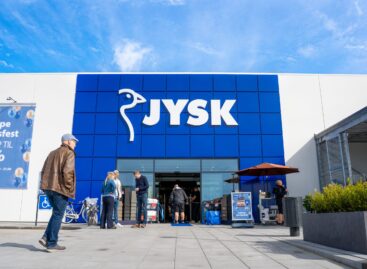Mol and the University of Pannonia have completed a successful consortium project
Mol and Pannon University have concluded a successful consortium project and have signed a three-year cooperation agreement, Mol informed MTI.
 According to the announcement, Pannon University, Mol and their consortium partners have successfully implemented their project to promote the transition to a circular economy.
According to the announcement, Pannon University, Mol and their consortium partners have successfully implemented their project to promote the transition to a circular economy.
The implementation of the project began in March 2020, when Pannon University and its consortium partners undertook research activities and technological developments supporting the transition to a circular economy in five key areas: renewable energies, waste management, water technologies, sustainable tourism and sustainable urban development.
As part of this, a five-reactor, semi-industrial-scale sustainable energy reactor system was implemented, which serves the development of thermal waste treatment processes.
In the water technology project, water purification equipment for the treatment of oily wastewater was produced, a joint development of the employees of Pannon University, Mol and Hidrofilt Kft. – it was announced.
At the project closing event, the University of Pannon and Mol also signed a three-year research, development and innovation (R&D&I) cooperation agreement, which confirms their shared commitment to sustainable solutions and innovation.
The aim of the joint research is to investigate chemical recycling technologies, with a particular focus on recycling options from selective waste, plastic and tire waste.
Related news
Related news
Nestlé to sell remaining ice-cream assets but commits to Froneri venture
🎧 Hallgasd a cikket: Lejátszás Szünet Folytatás Leállítás Nyelv: Auto…
Read more >Lidl guarantees fairer prices for cocoa farmers
🎧 Hallgasd a cikket: Lejátszás Szünet Folytatás Leállítás Nyelv: Auto…
Read more >









